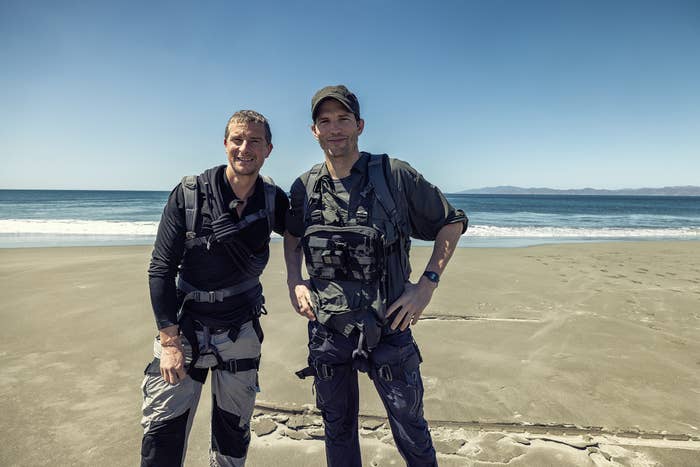
Actor Ashton Kutcher, 44, revealed he dealt with a “weird, super-rare form of vasculitis” two years ago that left him unable to see, hear, or walk.
“You don't really appreciate it until it's gone, until you go, ‘I don't know if I'm ever going to be able to see again; I don't know if I'm ever going to be able to hear again; I don't know if I’m ever going to be able to walk again,’” Kutcher says in an episode of National Geographic’s Running Wild With Bear Grylls: The Challenge set to air Monday. A clip of the episode was first published by Access Hollywood.
The That '70s Show star said it took him about a year to recover.
“Lucky to be alive,” Kutcher says in the clip.

Vasculitis is inflammation of the blood vessels, which includes any arteries, veins, and capillaries that carry blood to and from the heart and other organs, according to the National Heart, Lung, and Blood Institute.
Overall, it’s an umbrella term that includes about 20 diseases such as Cogan’s syndrome, Kawasaki disease, and giant cell arteritis that all trigger inflammation in the vessels that can decrease blood flow to tissues throughout the body.
It’s unclear what type of vasculitis Kutcher experienced, but most are considered rare, particularly the cases that cause blindness and deafness. Although the disease affects men and women equally, and can develop in people of all ages, cases mostly affect older adults, according to the National Organization for Rare Disorders.
Still, the causes of vasculitis are not well understood.
In some cases, vasculitis is thought to be an autoimmune disorder that for unknown reasons tricks the immune system into attacking its own healthy blood vessels. The disease may also come about as a response to certain medications like penicillin or infections with the hepatitis C or hepatitis B viruses, for example, the Arthritis Foundation says. Vasculitis can also occur alongside cancers or other diseases such as leukemia, rheumatoid arthritis, lupus, or Sjögren's syndrome (an immune system disorder that causes dry eyes and mouth).

Because there are so many different types of vasculitis, its symptoms vary widely, as well as its severity and duration. Some people experience vasculitis once or several times a year, with symptoms developing either slowly over months or rapidly over days to weeks.
Common symptoms aren’t too different from many other illnesses out there, including fever, loss of appetite, fatigue, muscle aches, and weight loss. Over time, the inflammation can affect most organs and systems in the body, such as the skin, lungs, GI tract, sinuses, eyes, joints, brain, and nerves.
In severe cases, the disease can cause organ damage or death by blocking blood vessels entirely, causing tissue damage called necrosis, blood clots, or bulging of the vessels called an aneurysm. If a vessel ruptures, internal bleeding, stroke, or death may follow.

Luckily there are treatments that can help, especially if the disease is caught early with the help of blood tests, biopsies, and special X-rays that look for abnormalities in blood vessels.
Some people with vasculitis are given steroids to help reduce inflammation. Others are prescribed immune-suppressing drugs such as cyclophosphamide and methotrexate (typically used to treat cancers), as well as azathioprine, which is normally used to treat rheumatoid arthritis and prevent organ rejection after transplants. In some cases, surgery is needed to repair severe damage.
Kutcher did not elaborate on how long his symptoms lasted or what kind of treatment he received, but the actor did share how his experience with the disease gifted him some perspective on life.
“The minute you start seeing your obstacles as things that are made for you to give you what you need, then life starts to get fun,” Kutcher says in the clip. “You start surfing on top of your problems instead of living underneath them.”
